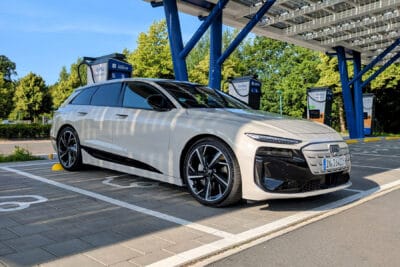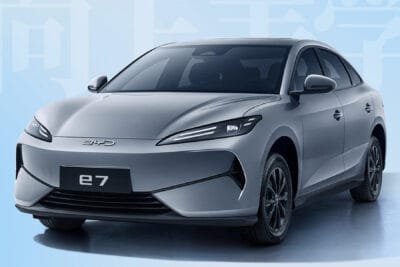Germany: Vice Chancellor wants to give EV buyers a €1,000 charging credit
That’s according to an internal paper obtained by several German media outlets. “We want to finance a charging credit of 1,000 euros (for charging at publicly accessible charging points) as an incentive to buy electric cars (new and used),” the three-page concept states. However, it does not specify precisely how such a charging credit would be implemented. It is thus more of a political position paper than a legislative draft.
It also argues in favour of purchase incentives. Germany should introduce tax incentives for EV buyers with low and medium incomes. “A certain proportion of the purchase costs” should be tax-deductible – according to the ministry, the subsidisation of energy-efficient building refurbishment serves as a model. With regard to EVs, the ministry also considers alternatives, such as a social leasing model for people on low incomes, as is the case in France.
According to the paper, the Ministry of Economic Affairs wants to “subsidise professional battery checks with 100 euros” to give consumers confidence when buying a used electric car. It is intended to make it easier for “price-sensitive customers in particular” to switch to electric mobility if a battery check provides certainty about the condition of the used vehicle battery and thus the residual value of the vehicle.” You can read more about the service life of batteries and why they generally last much longer than many people expect in this article.
To support the ramp-up of electric mobility in Germany, the ministry also wants to speed up the expansion of the charging network. However, “more competition through increased supply and better price transparency is needed,” the ministry says. Dynamic charging rates and bidirectional charging are also mentioned, but here, too, they are more of a general demand than a concrete proposal for implementation. According to the paper, Habeck also wants to work towards reducing the electricity tax for all to the European minimum level and halving the grid fees through partial public financing.
The sudden cancellation of Germany’s environmental bonus at the end of 2023 has slowed down the growth of electric mobility. In recent months, new registrations in Germany have remained relatively constant at around 35,000 electric cars, which corresponds to a market share of around 14 per cent.
However, to meet the stricter CO2 fleet limits starting in 2025, manufacturers will have to achieve a rough share of 25 per cent of electric cars. If the CO2 emissions of their new car fleet are too high (electric cars are a major lever, but not the only one), they could face high fines from the EU. In recent weeks, Habeck – like Federal Chancellor Olaf Scholz (SPD) – has spoken out in favour of making the regulation more flexible, for example, by creating the possibility of avoiding fines from 2025 by overfulfilling the targets for 2026 and 2027. The plan is mentioned again in the current paper.
However, the big question is whether the ideas in this paper can ever be implemented. The current federal government, consisting of the Social Democrats and Habeck’s Green Party, has not had a majority in the German parliament since the third partner (the FDP) left the coalition. Early federal elections are due to be held in February 2025. It is unclear what the next government will look like and what strategy it will pursue in the area of electric mobility.
morgenpost.de, spiegel.de (both in German)





0 Comments